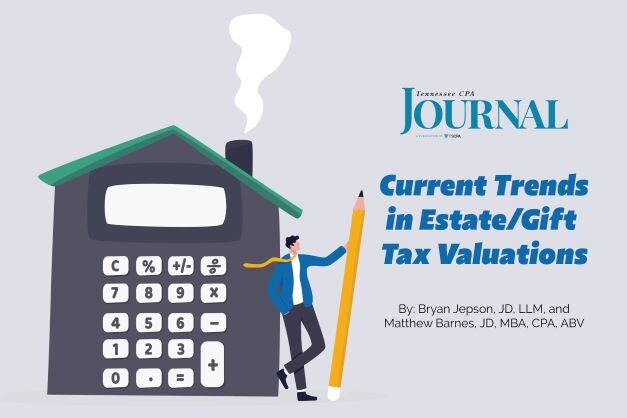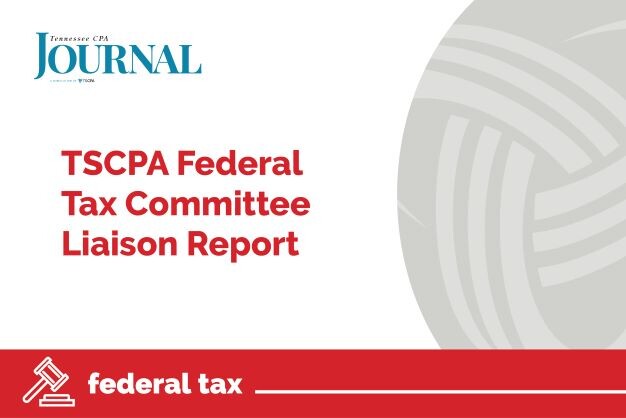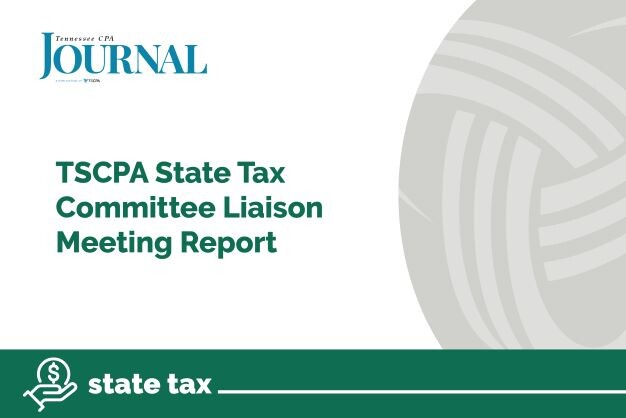Feb. 26, 2024, Legislative Update
As reported in our previous legislative update, TSCPA continues to monitor and engage in the discussion about SB 2103/HB 1893. This legislation is poised to overhaul the franchise tax by eliminating the alternative measure using real and tangible personal property in Tennessee. It is estimated that approximately 100,000 businesses will be eligible for approximately $1.5 billion in refunds for tax years 2020-23. Although the proposed bill could be amended as it progresses through the legislative process, TSCPA encourages members to begin planning now. TSCPA recently met with the commissioner of the Department of Revenue, and below is what we know about the refund claim process.
Please note: All information in this article is subject to change upon passage of the legislation. This information is being shared to allow practitioners time to plan for handling what may be a high volume of refund claims for clients. TSCPA members should refer to final guidance from the Tennessee Department of Revenue once that guidance becomes available.
An amendment to the bill is in process that would require all refund claims to be filed between May 1 and Nov. 30, 2024. Due to this compressed timeframe for refund claims, it is important that practitioners start considering the following points.
Important Points To Consider
- The bill authorizes the commissioner of the Tennessee Department of Revenue to issue refunds under certain conditions to taxpayers who properly file a claim for refund for taxes paid using the alternative measure.
- The Department of Revenue plans to notify filers who are eligible for refund. These notices will be available in TNTAP. There is not a projected date as to when these notices will be sent.
- Amended returns will need to be filed in the same manner that the original return was filed.
- Taxpayers will need to allow the amended return to process overnight before submitting the refund claim via TNTAP. Amended returns should be filed in order (i.e., 2020, 2021, 2022, 2023). The refund claims will need to be supported by a balance sheet and the report of debts.
- 2023 FAE returns should be filed under current law using Schedule G. The 2023 return will have to be amended and a refund claim submitted, just as taxpayers will do for the 2020-22 tax years.
- An amendment to the bill is in process that would require all refund claims to be filed between May 1 and Nov. 30, 2024.
- The refund would be limited to the difference in tax between what was paid using the tangible or real property base and what would have been paid using the apportioned net worth base.
- Interest at the rate established by 26 U.S.C. § 6621(a)(1) for a large corporate overpayment in the amount of the federal short-term rate plus 0.5 of a percentage point must be added to the amount beginning 90 days from the date the Department of Revenue receives the refund claim and proper proof to verify that the refund or credit is due.
- Credits used will be reinstated but not included in the refund.
- Example 1:
- On original 2020 return, the taxpayer has a tax liability of $100,000 using property base. Taxpayer applies a $5,000 job tax credit. Taxpayer paid tax of $95,000.
- On the amended return, which eliminates Schedule G, the taxpayer has a tax liability of $90,000. With the application of the job tax credit, the tax liability is $85,000.
- Refund to taxpayer will be $10,000.
- Example 2:
- On original 2020 return, the taxpayer has a tax liability of $100,000 using property base. Taxpayer applies a $50,000 job tax credit. Taxpayer paid tax of $50,000.
- On the amended return, which eliminates Schedule G, the taxpayer has a tax liability of $90,000. The taxpayer can only apply $45,000 of the job tax credit, which results in a tax liability of $45,000. Since the taxpayer originally paid $50,000, they are due a refund of $5,000 and will get $5,000 of the job tax credit reinstated.
- Example 1:
TSCPA is committed to advocating for our members. TSCPA’s lobbying team has expressed concern over the potential amendment that would require refund claims to be submitted by Nov. 30, 2024. We will continue to participate in periodic meetings with the Department of Revenue and provide input as the administrative process for refunds is further developed. As updates to the proposed legislation become available, we will notify our members. Please direct any questions to Kara Fitzgerald at kfitzgerald@tscpa.com.



